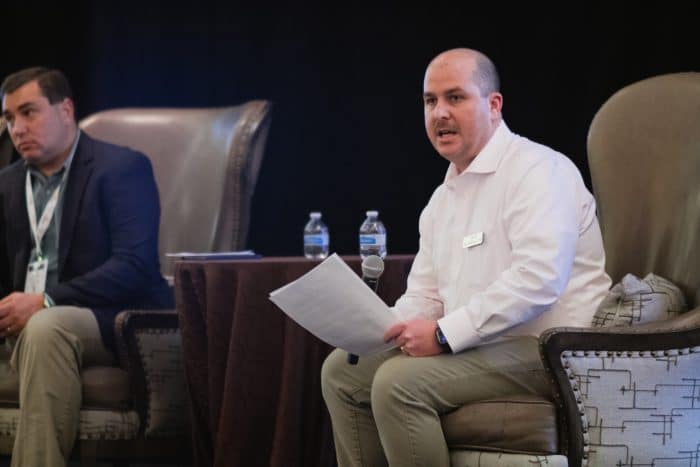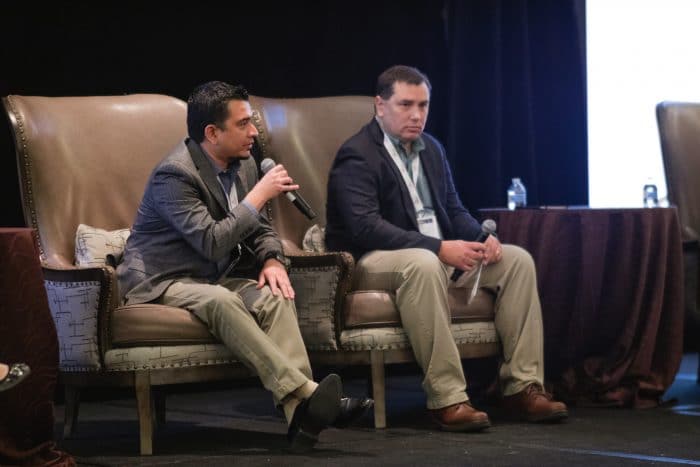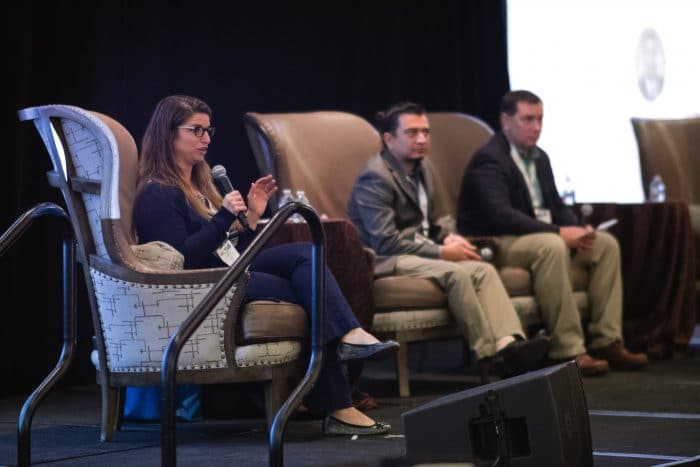Continuing supply chain disruptions shift emphasis from lean to reliable
For buyers and tollers within the specialty chemical sector, there is an ever-present challenge of overcoming delays with raw material supply. As a result of the disruption and to keep projects moving forward, companies are shifting their emphasis from lean to reliable. They are also successfully aiming for increased flexibility in order to be more innovative and adaptive than ever before.
These are just a few areas of focus from SOCMA’s Buyer/Toller panel discussion at the SOCMA’s 2022 Specialty & Custom Chemicals Show. Panelists included Jessie Walters, Global Procurement Director, External Manufacturing, Evonik, Sam Pathak, Manager, Contract Manufacturing Solutions, BASF, and Keith Edwards, External Manufacturing Project Manager, Dow Chemical Company.
Below is a brief analysis of what the panelists shared with our moderator, Joe Dettinger, SOCMA’s Senior Director of Technical & Safety.

Raw material supply
The main focus of supply chain disruption in the toll manufacturing sector has been to assure consistent and timely deliveries of raw materials and intermediates, as well as shipping of finished goods.
Scheduling has been a major challenge and has required creativity. It is a particular complication for trial batches because these require very specific parameters. Some companies have found an unusual, but effective, solution by shipping raw materials for trial runs to their toll manufacturers and arranging for the materials to be stored onsite or at a nearby warehouse under controlled conditions, even if the original scheduled slot for the trial has had to be shifted.
Having a trial run on standby would appear to be a “hope for the best” situation for some companies rather than realistic planning. However, we learned that tollers are typically able to run these trials about 90 percent of the time.
One company told us that while toll operators can do fine in buying volumes of raw materials and intermediates for commercial-scale production, volumes for trial runs are often purchased from distributors, which makes them more vulnerable to supply chain disruptions.
From lean to reliable
The shift toward shipping raw materials to a toller before a trial may even be on their schedule is part of a larger trend across many industries – away from “Just in Time” to “Just in Case” inventory management. Having more inventory at every stage of the operation is now considered a savvy and economical hedge against unforeseen complications. According to one panelist, “The cost of a few hundred or a thousand more pounds in inventory is nothing compared to the cost of having to be out of production for a few days.”
That is a particularly acute issue in toll manufacturing because both operators and their clients have long procedures for certification. Because qualifying a new manufacturing partner is time-consuming, it has been a challenge to have an agile and responsive supply chain. It also makes it prohibitive to have qualified suppliers, carriers or other service providers on standby.

As one panelist shared, “I have conversations about risk all day, and there are times that we can be less risk averse. But we still have to follow protocols, all the checks and balances, and our internal controls.”
The tactical planning for staging raw materials or intermediates begins about six months in advance of scheduled production. That is far enough ahead to be able to plan and execute staging and storage, but also close enough to have accurate recent information on production and logistics conditions. The 6-month timeframe also represents the window in which most financial executives are willing to take the risk.
Partnership trust
The term “partnership” is frequently used in business and at times, its actual meaning can get lost. But when that term is a true depiction of the relationship between a toll manufacturer and their client, it serves as the basis for planning and represents the ability to adapt together.
Partnership means trust. Not only are the partners individually trying to protect themselves, financially and contractually, but they are also trying to protect the relationship itself, according to our panel. In some long-term partnerships, the terms and conditions of contracts have expanded and improved significantly because of the trust that has been established and built upon.

Even the deepest, strongest and most trusting business partnerships have to start somewhere, and contacts being forged now can suffer at times from too much information. This is especially true of toll manufacturers when trying to promote themselves and their capabilities to potential clients.
Don’t clutter your capabilities
When looking for a tolling partner, potential clients don’t want to know the 50 things you can do. They want to know the five things you do really well – your core competencies. A batch you executed once several years ago, even if it was complicated, is not as useful to them as knowing what you do well every day, even if it’s fairly simple. A long list of capabilities is just clutter. Our panelists advised that you shouldn’t be “a jack of all trades and master of none.”
The focus on core capabilities and chemistries also extends beyond reaction and synthesis. Potential clients want to know about accompanying benefits, such as rail and port access, as well as storage. Rail access and bulk storage implies capability in materials handling. Port access implies capabilities in international shipping regulations.
Communication is key
An important skill for toll manufacturers that stands out to customers is the ability to say no. Panelists told us they would rather have a toll manufacturer simply say no to a project rather than talking for weeks before deciding not to proceed; or worse, starting the project and having it be unsuccessful.
As always, communication is key. Client companies don’t need to know every turn of the screw, but they do need to be kept current. If there is a problem, let them know. Maybe they can offer suggestions or solutions. Communications must be open and forthright for a partnership and project to be successful.
One panelist shared, “We view our toll manufacturers as plants that are part of our organization that we just happen not to own. We treat them as internal and expect they will treat us in the same manner.”
Virtual site visits
Not being able to conduct in-person site visits with tolling customers has caused a disruption of sorts for technical support onsite. As a remedy, one company utilized Google Glasses to conduct some of their visits.
The audience expressed curiosity and intrigue at the mention of Google Glasses, a recent technological innovation. Google Glasses are attached to a hard hat and connected to a live stream where customers can watch processes taking place onsite and in real time with their tollers. Companies also have used cameras and manual videos to stay abreast of the processes and provide technical support.

At the end of the day, these companies are ready to get back onsite and in the plants where they can interact with their tolling partners. Technology is a wonderful, necessary element to modern life and it’s amazing what the industry has now versus what was available just 5 to 10 years ago. But, at the end of the day, the panel agreed there’s simply no replacement for the value of being onsite, especially when it’s a new process that’s running for the first time. However, virtual technology has been a vital and a helpful stopgap for maintaining connectivity with tolling partners during these unprecedented times.
SOCMA Solutions
SOCMA’s resources are being utilized by these buyers and others on a daily basis, including the Manufacturing Solutions Platform and Lead Sheet program. For more information on SOCMA’s resources, contact Joe Dettinger at jdettinger@socma.org.
Categorized in: Uncategorized